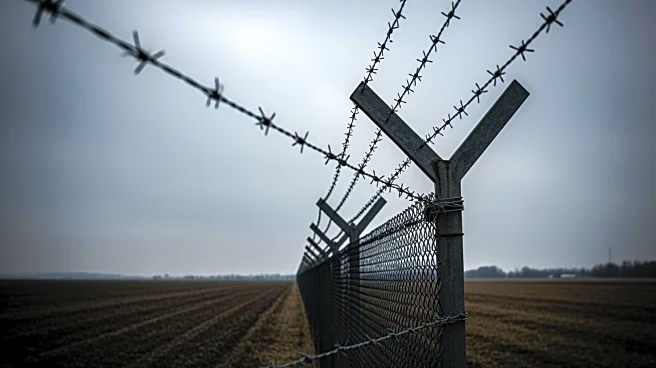What's Happening?
A recent report from the Korea Institute for National Unification (KINU) has highlighted the ongoing operation of North Korea's political prison camps, where approximately 65,000 individuals are detained.
These camps are reserved for those accused of 'anti-Party, anti-revolutionary, and anti-state' offenses, which can include perceived slights against the regime or possession of foreign media. Despite North Korea's denial of these camps, defectors have described them as sites of severe human rights abuses, including torture, starvation, and execution. The report identifies four major camps, detailing their structure and the forced labor zones within them.
Why It's Important?
The existence and operation of these camps underscore North Korea's status as one of the world's most egregious human rights violators. The systemic abuses reported by defectors highlight the dire conditions faced by detainees, which include forced labor and severe punishment. This situation poses significant challenges for international human rights organizations and governments seeking to address these violations. The report's findings may influence diplomatic strategies and human rights advocacy efforts aimed at pressuring North Korea to reform its practices.
What's Next?
The report calls for increased efforts to document the camps more accurately, including enhanced satellite monitoring and interviews with defectors. It also urges the South Korean government to maintain international pressure on North Korea and collaborate with the United Nations to develop actionable recommendations for change. These steps are crucial for fostering accountability and potentially prompting reforms in North Korea's approach to human rights.
Beyond the Headlines
The report's revelations may have broader implications for international relations, particularly in how countries engage with North Korea. The ethical and legal dimensions of these human rights abuses could lead to increased scrutiny and calls for accountability from global leaders and organizations. Long-term shifts in diplomatic strategies may emerge as countries reassess their policies towards North Korea in light of these findings.










